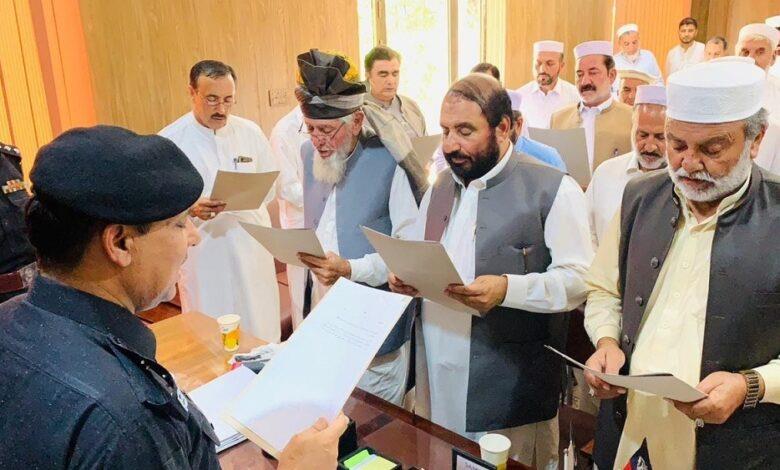(MENAFN- Tribal News Network) Muhammad Bilal Yasir After the merger in 2018, the 116-year-old FCR (Frontier Crimes Regulation) system was abolished and replaced with the judicial system of Pakistan. This significant change extended the jurisdiction of High Courts to the tribal districts. Moreover, in a historic move, judges were appointed in the merged tribal districts and began their regular work on 11th March 2019, marking a new era of justice in the region.
ADR (Alternate Dispute Resolution) system was also introduced in Bajaur, a tribal district, in May 2021. This system aimed to address local issues by providing an alternative to the formal court system, while also respecting tribal customs and traditions.
A committee consisting of local tribal elders, known as Jirga, was sworn in to oversee the ADR process. Individuals were given the option to seek resolution through this committee before resorting to the court system, promoting a more localized and culturally sensitive approach to dispute resolution.
Also Read: devastating monsoon rains claim lives and cause destruction in landi kotal
In addition to the District Court and ADR, the Khyber Pakhtunkhwa Government has recently established a Dispute Resolution Council (DRC) in Bajaur. This council aims to settle disputes between citizens at the district level, thereby reducing the burden on police stations and courts. By implementing the DRC, the government seeks to streamline the resolution process and ensure timely and effective resolution of disputes within the local community.
Roles and Responsibilities of the DRC Committee
The newly established Dispute Resolution Council (DRC) consists of members who were previously part of the ADR committee. The committee is headed by District Police Officer Bajaur, Nazir Khan, who will provide supervision and guidance to the committee members. During the swearing-in ceremony, District Police Officer Bajaur Nazir Khan expressed his commitment to resolving various issues and conflicts existing in the district in a peaceful manner, adhering to regional customs and traditions.
He emphasized that the establishment of the Dispute Resolution Council is a positive step towards achieving lasting peace. The council members are dedicated to promoting peace and harmony in the region. District Police Officer Bajaur urged the council members to approach their responsibilities with honesty, good faith, and transparency, ensuring that they resolve disputes between parties in accordance with regional customs and laws.
The primary goal of the Dispute Resolution Council is to facilitate peaceful resolutions and foster regional stability. The council members are entrusted with the crucial task of promoting understanding, reconciliation, and harmony among the disputing parties while upholding the values and principles of the local community. Their efforts are aimed at creating an environment where conflicts can be resolved peacefully, contributing to a peaceful and prosperous district.
Perspectives of Political Leaders
Syed Siddique Akbar Jan, Deputy General Secretary of Awami National Party, Bajaur, who actively participated in the local body elections, expresses his dissatisfaction with the ADR system. According to him, the system failed in tribal areas as it involved individuals who supported the FCR (Frontier Crimes Regulation) and opposed civil law. With the launch of the DRC, Siddique Akbar highlights the need for a committee that includes independent Jirga members or elected representatives from the local government to effectively address the issues at hand.
Qari Abdul Majeed, Deputy Amir of Jamaat-e-Islami Bajaur, shares his perspective on ADR and DRC. He questions the significance of these systems in the presence of the District Court. However, he acknowledges that they can be utilized if people find them beneficial. It is essential, though, to ensure that these systems are not stigmatized and remain free from cruelty and nepotism.
Insights from Legal Experts
Javed Shah, advocate and President of the Bajaur Bar Association, provides insights into the legal aspects of ADR and DRC. He clarifies that DRC is part of the police system, while ADR serves as a subsidiary system for civil law.
According to Shah, both ADR and DRC exist to facilitate mediation and resolution of societal issues according to the preferences of the involved parties. No organization can compel individuals to engage with these systems. The local court strives to provide convenience to the people, offering easy and affordable justice within its jurisdiction. In the DRC, no one can coerce anyone seeking assistance, ensuring a voluntary and unbiased approach to dispute resolution.
Hits: 0



















Comments
No comment